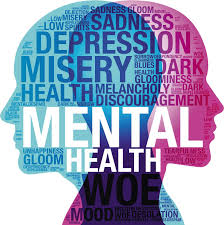What are the best things for mental health?
In today's fast-paced world, where stressors seem to lurk around every corner, taking care of our mental health is paramount. Just as we prioritize
- Mindfulness and Meditation: At the forefront of mental health practices is mindfulness and meditation. These techniques encourage individuals to be present at the moment, to observe their thoughts without judgment, and to cultivate a sense of inner peace. Research has shown that regular mindfulness practice can reduce stress, anxiety, and depression while improving overall well-being.
- Regular Exercise: Physical activity isn't just beneficial for our bodies; it's also crucial for our mental health. Exercise releases endorphins, chemicals in the brain that act as natural painkillers and mood elevators. Whether it's going for a run, practicing yoga, or lifting weights, finding an exercise routine that you enjoy can have profound effects on your mental well-being.
- Healthy Eating Habits: The food we consume plays a significant role in our mental health. A diet rich in fruits, vegetables, whole grains, and lean proteins provides essential nutrients that support brain function and mood regulation. Conversely, diets high in processed foods, sugars, and unhealthy fats can contribute to mood swings and mental health disorders.
- Adequate Sleep: Sleep is essential for both physical and mental health. Chronic sleep deprivation can lead to an array of mental health issues, including anxiety, depression, and impaired cognitive function. Establishing a regular sleep schedule and creating a relaxing bedtime routine can improve the quality of your sleep and enhance your overall well-being.
- Social Connections: Human beings are social creatures, and maintaining meaningful connections with others is vital for our mental health. Whether it's spending time with family, nurturing friendships, or participating in group activities, social support provides a sense of belonging and can help buffer against stress and adversity.
Setting Boundaries: Learning to say no and establishing healthy boundaries is crucial for protecting our mental health. Overcommitting ourselves can lead to burnout and resentment while setting clear boundaries allows us to prioritize self-care and focus on activities that bring us joy and fulfillment.
Seeking Professional Help: Despite our best efforts, there may be times when we need professional support to manage our mental health. Therapists, counselors, and psychiatrists are trained to provide guidance, support, and treatment for a wide range of mental health concerns. Seeking help is a sign of strength, not weakness, and can be instrumental in overcoming challenges and improving overall well-being.
Practicing Gratitude: Cultivating a sense of gratitude can have profound effects on our mental health. Taking time each day to reflect on the things we're grateful for can shift our focus away from negativity and foster a more positive outlook on life. Whether it's keeping a gratitude journal or simply expressing thanks to those around us, acknowledging the good in our lives can promote happiness and resilience.
Engaging in Hobbies and Creativity: Pursuing activities that bring us joy and fulfillment is essential for maintaining good mental health. Whether it's painting, playing music, gardening, or cooking, engaging in hobbies and creative pursuits allows us to express ourselves, reduce stress, and foster a sense of accomplishment.
Spending Time in Nature: Connecting with nature has been shown to have numerous benefits for mental health. Whether it's going for a hike in the mountains, taking a walk in the park, or simply spending time in your backyard, being in nature can reduce stress, improve mood, and promote feelings of calm and well-being.
Conclusion:
In conclusion, prioritizing our mental health is essential for leading fulfilling lives. By incorporating practices such as mindfulness, exercise, healthy eating, and social connections into our daily routines, we can nurture our well-being and build resilience in the face of life's challenges. Additionally, seeking professional help when needed practicing gratitude, setting boundaries, and engaging in hobbies can further support our mental health journey. Remember, taking care of your mental health is not selfish; it's necessary for living your best life.

Comments
Post a Comment